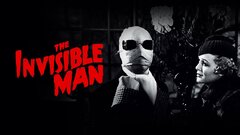Preston Sturges

Writer • Director
Birth Date: August 29, 1898
Death Date: August 6, 1959 — 60 years old
Birth Place: Chicago, Illinois
Grandchildren: Shannon Sturges
Featuring razor-sharp wit and astringent dialogue, writer-director Preston Sturges ranked as one of American cinema's most gifted creative talents. After emerging from the theater world, Sturges almost singlehandedly redefined the screwball comedy as a director, while getting his start as a writer on such varied movies as the adaptation of H.G. Wells' "The Invisible Man" (1932), the time-shifting drama "The Power and the Glory" (1933), the biopic "Diamond Jim" (1935), and the historical drama "If I Were King" (1938). But it was as a director that Sturges left his most indelible mark. Frustrated with his lack of control as a writer, he took the reins of production to helm such classics as "The Great McGinty" (1940) and "The Lady Eve" (1941).
He delved into more satirical waters with "Sullivan's Travels" (1941) and "The Palm Beach Story" (1942), before stumbling over the box office failure of "The Great Moment" (1944). Sturges triumphed again with two more classics, "The Miracle of Morgan's Creek" (1944) and "Hail the Conquering Hero" (1944), but once again felt the need for independence after studio meddling.
He freed himself from his contract to work independently with millionaire Howard Hughes. But after the failed Harold Lloyd comeback vehicle, "The Sin of Harold Diddlebock/Mad Wednesday" (1947), Sturges had an irreparable falling out with Hughes. Though he managed a critical success with "Unfaithfully Yours" (1948), his career was nearing its end. Sturges nonetheless remained one of Hollywood's most respected pioneers, particularly with his ability to meld smart, witty comedy with social commentary.
Born on Aug. 29, 1898 in Chicago, IL, Sturges was raised by his father, Edward Biden, a salesman, and his mother, Mary, a cosmetic shop owner who married several times throughout her life. He spent his early childhood shuttling between his native Chicago, where his adoptive father, Solomon Sturges, lived and the rest of the time in Europe. His iconoclastic mother, Mary Desti, brought her son with her as she journeyed across Europe with dancer Isadora Duncan (Desti later became notorious for loaning the scarf that ultimately strangled Duncan in her freakish death).
After she separated from her second husband, Desti enrolled Sturges in series of boarding schools in France, Germany and Switzerland. Having such a colorful figure as a mother affected him and how he viewed women, and later demonstrated that he had clearly inherited her originality.
By 1914, the teenage Sturges was working at Maison Desti, his mother's cosmetics shop in Deauville, France. Sent back to America when World War I erupted, the youngster briefly worked backstage for one of Duncan's New York engagements and then assumed responsibilities for the New York branch of his mother's business. When the United States entered the war in 1917, Sturges joined the fight and served in the U.S. Army Signal Corps, though he never saw any action.
Following his discharge, Sturges returned to the cosmetics business, where as an amateur inventor he developed a "kiss-proof" lipstick. But he had to relinquish management of the business upon his mother's return home. Meanwhile, a bout of appendicitis in 1927 led Sturges to write his first plays, while the failure of his first marriage to actress Estelle Godfrey - who claimed that their relationship was mere fodder for her art - served as the inspiration for his first writing effort, "The Guinea Pig" (1928).
The play first staged at the Provincetown Playhouse in Massachusetts before transferring to Broadway in January 1929, where it ran for 16 weeks. Although a modest success, "The Guinea Pig" paled in comparison to his second play, "Strictly Dishonorable" (1929), which proved to be a smash hit despite the stock market crash that triggered the Great Depression.
His next three stage efforts, however, proved to be disappointing failures and took a serious financial toll on Sturges, since he invested his own money in them. But by then, Sturges had made inroads in the motion picture business and propelled him down a path that led to becoming one of the true pioneers of the still-fledgling business.
In 1929, Paramount Pictures tapped Sturges to write dialogue for the film version of two plays, one of which, "The Big Pond" (1930), possessed traces of what would become Sturges' hallmarks: a love-triangle, a sense of fate, a business tycoon character, and the use of puns and misunderstandings. Meanwhile, Universal put him under contract to pen an adaptation of "The Invisible Man" (1932). Changing the setting to Central Europe, he fashioned a highly-praised screenplay, but director James Whale wanted to remain more faithful to H. G. Wells' novel and brought in another writer to rework the script, forcing Universal to drop the Sturges' option.
In a then-groundbreaking mixture of cash and a percentage of the gross profit, Sturges sold an original screenplay to Fox based on stories told to him by his second wife about her grandfather, C.W. Post. The result, "The Power and the Glory" (1933), directed by William K. Howard, was the tale of a railroad tycoon (Spencer Tracy) told in a non-linear fashion dubbed "narratage." Sturges used flashbacks with narration in the film which was critically well-received, but not a box-office success, though the narrative structure of the movie was seen as a precursor to "Citizen Kane" (1941).
Having been allowed on the set during the shooting of "The Power and the Glory," Sturges noted the treatment of the director by the studio, cast and crew. Coming from the theater where the writer's words were sacrosanct, he was reluctant to give up that power. After finishing out the 1930s as a screenwriter, penning such interesting efforts as the biopic "Diamond Jim" (1935), the romantic comedy "The Good Fairy" (1935), the screwball comedy "Easy Living" (1937) and the period drama "If I Were King" (1938), he struck a deal with Paramount to direct an earlier original script, "The Great McGinty" (1940).
Sturges became one of the first writer-directors in the studio system, paving the way for John Huston and the multitudes that followed, with much of his reputation resting on the eight films he made between 1940-44. Targeting a system that he felt stressed material success and moral hypocrisy, Sturges lobbed his comedic grenades by inverting the standards of popular romantic comedies, including mistaken identities, the fickleness of fate and the repetition of events. Starring Brian Donlevy, "The Great McGinty" satirized the American political system by showing how a disreputable type could rise to become mayor and then governor, only to be brought down by his truth-telling wife (Muriel Angelus). The film, which brought Sturges an Oscar for its screenplay, staked his reputation as a comedic director.
At the time, Sturges began associations with several actors, including William Demarest, Harry Rosenthal and Robert Warwick, all of whom formed an unofficial stock company and appeared in several of his films. Meanwhile, Paramount released "Christmas in July" (1940), which skewered big business, advertising and the conspicuous consumer. Sturges went on to direct "The Lady Eve" (1941), a complex romantic comedy about a bumbling snake hunter (Henry Fonda) who becomes the prey of a cool, sexy con artist (Barbara Stanwyck). Fonda and Stanwyck enjoy a shipboard romance but he rejects her when he learns of her unsavory past, and in order to win her man, Stanwyck reinvents herself as a British noblewoman. In one of the most memorable set pieces in film, Stanwyck takes a moment on their honeymoon to regale her new husband with a list of every love affair she has ever had. As the scene progresses and Fonda's jealousy increases, Sturges skillfully employs the soundtrack as a counterpoint; the train enters tunnels with its wheels clacking and whistles blowing, a storm develops and the score swells. Marvelously acted, "The Lady Eve" was a hit for Paramount and boosted the stock of all involved.
Paramount gave Sturges free rein with his next films, starting with perhaps his most personal, "Sullivan's Travels" (1941), a satire that focused on a comedy film director (Joel McCrea) who wants to make more meaningful motion pictures. Determined to experience poverty firsthand, he sets off as a hobo with an aspiring actress (Veronica Lake) in tow. For a comic piece, "Sullivan's Travels" had a dark undertone with the ultimate moral being that people don't want to be reminded of their situations, they want escapism. As Sullivan says near the end of the picture, "There's a lot to be said for making people laugh." The following year, Sturges wrote and directed "The Palm Beach Story" (1942), a satire on business and greed about a woman (Claudette Colbert) who leaves her inventor husband (McCrea) for a millionaire (Rudy Vallee). When the husband arrives in Florida, he is pursued by Vallee's sister (Mary Astor) with unpredictable results. The film owed much to the French farces that once captivated a youthful Sturges.
After stumbling somewhat with "The Great Moment" (1944), a somber biography of the inventor of anesthesia that employed some of the flashback techniques of "The Power and the Glory," Sturges hit his stride with two comedies set in small-town America: "The Miracle of Morgan's Creek" (1944) and "Hail the Conquering Hero" (1944). The former took on marriage, motherhood, religion, patriotism and politics in its story about Trudy Kockenlocker (Betty Hutton), the daughter of a local constable who finds herself pregnant after a rowdy evening and later gives birth to sextuplets. The latter satirized the American need for hero worship as a reject from the Marines (Eddie Bracken) fakes war service and is welcomed home in triumph, only to be later unmasked, leaving his hometown stunned. Sturges was nominated twice for Academy Awards in 1944 in the same category of Best Original Screenplay.
In part still craving more independence, Sturges terminated his contract with Paramount - a move that in retrospect was foolish and from which his career never recovered. Despite initial resistance, the studio acquiesced to his demand and let him go.
Sturges entered into an ill-advised partnership with Howard Hughes, with the reclusive millionaire offering to bankroll the filmmaker and forming the California Pictures Corporation. Sturges' first film under this new agreement was designed to be a comeback for silent screen star Harold Lloyd, who had fallen into semi-retirement. With "The Sin of Harold Diddlebock/Mad Wednesday" (1947), Sturges attempted to present Lloyd's character from "The Freshman" (1925) as a bookkeeper who loses his job and embarks on a series of adventures. A mixed bag, there were moments of brilliance surrounded, however, by too many dull spots. Even before the film was released, problems between Hughes and Sturges ensued. Max Ophuls had originally been hired to direct "Vendetta," but Hughes was displeased with his work and handed the film over to Sturges, who in turn failed to make his boss happy. Sturges was fired from "Vendetta" - which went through a string of directors, with Mel Ferrer finally ending up credited in its 1950 release - and their partnership was dissolved. Hughes released "The Sin of Harold Diddlebock" briefly in 1947, but quickly withdrew it. A recut version re-titled "Mad Wednesday" was released in 1950, but met with a mixed reception.
A man without an island, Sturges was offered safe haven by 20th Century Fox studio head, Darryl F. Zanuck, where the writer-director responded with his last major film "Unfaithfully Yours" (1948), a black comedy about a famous symphony conductor (Rex Harrison) who suspects his wife (Linda Darnell) of adultery. Sturges employed a technique of telling the same story in a multiple manner, using two fantasy sequences in which the conductor plots revenge on his cheating wife before the same events unfold in reality, with the maestro contemplating murder. "Unfaithfully Yours" was not appreciated in its time because of its dark undercurrent and failed at the box office, but later developed a following and was considered to be one of the director's best films. Hoping to fashion a hit for Fox, Sturges undertook the Western spoof "The Beautiful Blonde from Bashful Bend" (1949), featuring a past-her-prime Betty Grable as a saloon singer mistaken for a schoolmarm. His only film made in color, it was a complete flop at the box office and all but ended Sturges' Hollywood career.
Over the next decade, Sturges wrote several scripts that went unproduced, acted in "Paris Holiday" (1958), and made one last film, "The French They Are a Funny Race" ("Les Carnets du Major Thompson") (1956), a marital comedy about a stuffy British military officer (Jack Buchanan) and the repercussions of wedding a Frenchwoman (Martine Carol). Though released in the United States in 1957, the film turned out to be another box office failure and proved to be the last Sturges film to open in America. The following year, he was hired to direct the Broadway play "The Golden Fleece," but was fired when one of the producers announced he was taking over the show. Sturges had struck a deal with a publisher for his memoirs and settled into New York City's Algonquin Hotel to write, but the project was left unfinished by his death on Aug. 6, 1959 of a heart attack. He was 60 years old.
His widow and fourth wife, Anne Nagle, subsequently assembled the material and published the book under the title Preston Sturges on Preston Sturges (1990). Prior to the book's release, "Unfaithfully Yours" was remade into a romantic comedy in 1984 with Dudley Moore and Nastassja Kinski in the leading roles.
Credits

Unfaithfully Yours
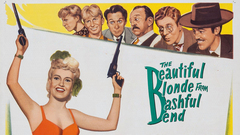
The Beautiful Blonde From Bashful BendStream

Unfaithfully YoursStream

Unfaithfully YoursStream

The Sin of Harold Diddlebock

The Sin of Harold Diddlebock

The Sin of Harold Diddlebock

Mad Wednesday

Mad Wednesday

Mad Wednesday

The Miracle of Morgan's Creek

The Miracle of Morgan's Creek

The Miracle of Morgan's Creek

Hail the Conquering Hero

Hail the Conquering Hero

Hail the Conquering Hero

The Great Moment

The Great Moment

The Great Moment

Safeguarding Military Information

Safeguarding Military Information

I Married a WitchStream

The Palm Beach Story

The Palm Beach Story
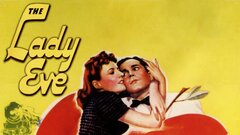
The Lady EveStream

The Lady EveStream
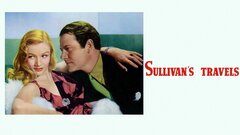
Sullivan's TravelsStream

Sullivan's TravelsStream

Sullivan's TravelsStream

Remember the NightStream

Christmas in July

Christmas in July
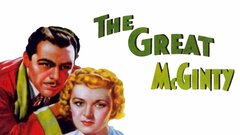
The Great McGinty

The Great McGinty

Never Say Die

Easy Living

Thirty Day Princess

The Power and the Glory
